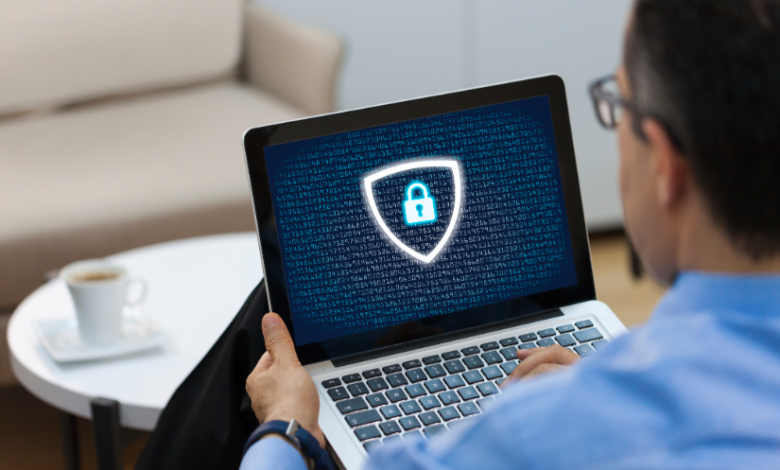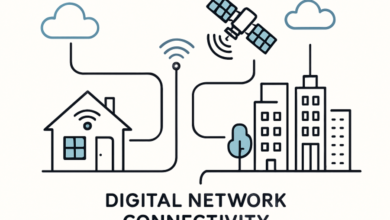Securing Your Online Experience

Understanding Online Risks
The internet has transformed how we communicate, work, and access information. However, increased connectivity also brings potential risks. Cyberattacks, phishing scams, identity theft, and data breaches have become prevalent. Public Wi-Fi networks, in particular, are vulnerable to attacks because many people share the same network without proper security measures.
Protecting personal and professional data requires proactive strategies. One essential approach is using tools that provide encrypted connections and secure online activity. This ensures that sensitive information remains private while enabling safe browsing across various networks.
What a VPN Offers
A virtual private network, commonly known as a VPN, helps safeguard online activities. It works by creating a secure connection between the user’s device and the internet, masking the IP address and encrypting all data transmissions. This prevents third parties from tracking online behavior or accessing confidential information.
A safe vpn specifically focuses on providing strong security while maintaining high performance. Unlike some services that compromise speed for protection, a safe vpn ensures users can browse, stream, and conduct online transactions without interruptions.
Key Advantages of Using a safe vpn
One of the primary benefits of using a safe vpn is enhanced privacy. By hiding the user’s IP address, it becomes significantly harder for advertisers, websites, or potential attackers to monitor activity. Encryption adds another layer of security, making data unreadable to unauthorized users.
Additionally, a safe vpn is crucial for anyone using public networks. Wi-Fi hotspots in cafes, airports, or hotels often lack proper security, exposing users to potential threats. A VPN ensures that all communications on these networks remain encrypted, providing peace of mind.
How to Choose the Right VPN
Selecting a reliable VPN involves evaluating several factors. Users should consider encryption strength, server locations, connection speed, compatibility with multiple devices, and the provider’s privacy policy. A trustworthy provider will not log personal data and will prioritize transparency.
For businesses, VPNs allow secure remote access to internal systems, protecting company information. Individuals benefit from privacy, unrestricted access to content, and improved online safety. Choosing a safe vpn ensures that these protections come without compromising speed or performance.
Addressing Common Misconceptions
Many users believe VPNs inherently slow down the internet. While low-quality services may affect speed, high-quality VPNs like a safe vpn optimize connections to maintain fast browsing and streaming.
Another misconception is that VPNs are only necessary for business use. In reality, anyone concerned with online privacy can benefit from a VPN. From accessing geo-restricted content to safeguarding personal information, a VPN provides valuable protection for all users.
See also: How WordPress SEO Companies Differ From General SEO Agencies
Combining VPN with Other Security Measures
While a safe vpn offers substantial protection, combining it with other security practices strengthens overall safety. Users should employ strong passwords, enable two-factor authentication, update software regularly, and be cautious about suspicious links or emails.
These measures, when used alongside a VPN, create a layered defense. Even if malicious actors attempt to intercept data, encryption provided by the VPN keeps information secure and unreadable.
Practical Applications
Individuals use VPNs for browsing, streaming, and maintaining online anonymity. Businesses rely on VPNs to secure remote work, protect sensitive communications, and maintain compliance with data privacy regulations.
A safe vpn allows all of these activities while ensuring fast and stable connections. Users can conduct online meetings, shop, stream videos, and access restricted websites safely and efficiently.
Preparing for Emerging Threats
Cyber threats evolve constantly, and new vulnerabilities appear regularly. Users must adopt proactive measures to maintain security. A safe vpn helps mitigate risks by encrypting traffic, hiding IP addresses, and offering anonymity.
Regularly updating security practices, such as adjusting privacy settings and monitoring account activity, ensures maximum protection. Combined with a safe vpn, these strategies help users maintain a secure online presence.
Conclusion
Securing digital interactions has become a necessity in the modern world. A safe vpn provides encryption, anonymity, and reliable protection against cyber threats. When combined with responsible online habits, a VPN ensures a comprehensive security approach.
By integrating a safe vpn into daily internet use, individuals and businesses can protect sensitive information without sacrificing performance. This balance of speed, privacy, and security allows for safe, uninterrupted access to the digital world.




